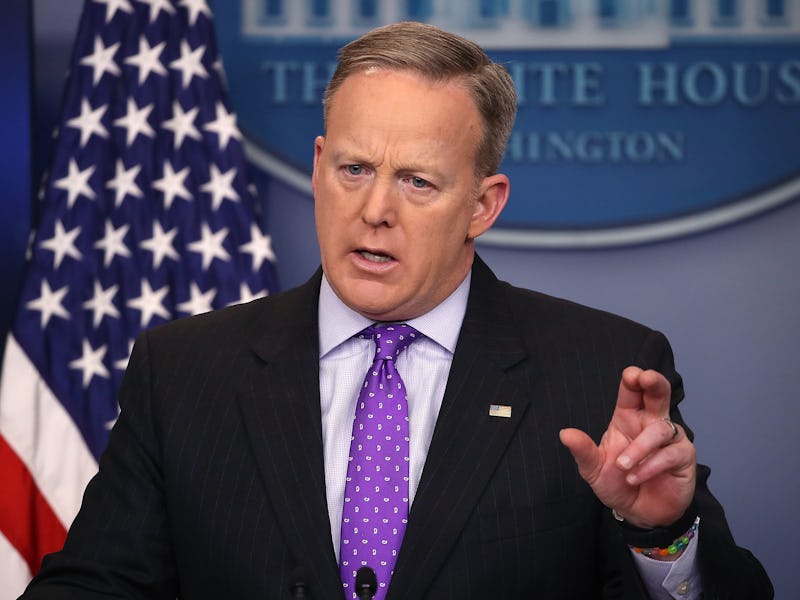Alternative Facts Improve Your Memory of the Truth
Tackling fake news head-on forces us to strengthen our memories.

Fake news has become a daily refrain in the news (“news”?) cycle, to the point where we question what’s real, what’s rational, what is a fact? Carleton College psychologist Adam Putnam, Ph.D., an expert in false memories, suggests that fake news is essential to teaching your brain to stay grounded.
According to Putnam, alternative facts help us keep our stories straight, as long as we can distinguish what’s real from what’s fake in the first place. In his study, which was recently published in the journal Psychological Science, he discovered that remembering differences between what’s true and what’s false actually helps people remember the truth in the long term. “This could inform our understanding of fake news in terms of thinking about what people would remember better,” he tells Inverse.
What Putnam initially meant to investigate was the “misinformation effect,” the well-known psychological phenomenon by which false memories are formed. It describes what happens when people are told incorrect information after an event and they subsequently remember the false bits as truth. This is what makes fake news so dangerous: Our memories suffer from “suggestibility” — that is, they’re easily influenced by external forces — and are therefore very susceptible to alterations.
But Putnam refused to believe that we are all doomed to be victims of this effect, wondering what happens when we’re told that the misinformation we receive is false. “We thought that maybe we could show that people would not show that misinformation effect if they noticed that they remembered the change,” Putnam says.
His hunch was right. In his study, he set up a classic misinformation trial, in which students viewed a series of photos about an event and, after completing an unrelated distractor task, read a series of descriptions relating to each of the photos. Not all of the descriptions were consistent: If a photo showed a thief finding $1 bills in a car, the summary might say he found $20 bills. Later, they filled out questionnaires about what they remembered. Were the accounts consistent with their memories? If not, what was different?
Asking these questions, Putnam found, was crucial to remembering the truth later on. The study showed that the misinformation effect was negated in the people who remembered noticing mistakes. That’s because memories are like pathways dug into the cerebral terrain: Those that are well traveled are more deeply etched into the brain, and asking questions about the veracity of those memories forces us to travel along them over and over again.
Seeing as we’re faced with huge amounts of misinformation every day, there’s a lot we can take away from this experiment to gird ourselves against false memories taking root in our minds. The parallel situation in real life, Putnam says, is when someone sees some accurate information, then is later exposed to false news or other inaccurate information. “What this research would suggest is that if people notice that there’s a difference, then that false memory might not hurt it as much,” he adds.
The trick, of course, is being able to discern alternative facts from actual facts — which requires some extra work on everyone’s part. “For me, the more important question is: How does someone evaluate the source of the information?” Putnam says. His research can’t tell us what’s fake or not, but it can tell us how to make sure we remember the truth when we find it. That’s going to be increasingly important — when alternative facts overwhelm the media, it’ll be everyone’s duty to keep the memory of the truth alive.